Pregnancy brings a lot of changes, including changes to your skincare routine. It’s normal to have questions, especially about what’s safe for your skin and safe for your baby during this time. One common concern is “Can you use retinol while pregnant?”
In this post, we’re going to tackle that question head-on. We’ll talk about whether retinol is safe for pregnant people and what alternatives you can consider.
What is Retinol?
Retinol is a popular skincare ingredient known for its ability to promote skin renewal and address various skin concerns. It’s often hailed as a go-to solution for issues like fine lines, wrinkles, acne, stretch marks, and dark spots. But what exactly is retinol, and how does it work?
Retinol is a form of vitamin A, a powerhouse nutrient that plays a crucial role in maintaining healthy skin. It stimulates cell turnover, helping the skin shed old, damaged cells and generate new ones. This process can improve skin texture, reduce the appearance of fine lines and wrinkles, and address acne. This process can help improve the overall texture and appearance of the skin, resulting in a firmer, smoother, more youthful complexion.

Pregnancy and Skincare
Pregnancy brings profound physical and emotional changes, requiring adjustments to your skincare routine. Hormonal fluctuations can lead to a range of skin issues, from acne flare-ups to increased sensitivity, so it’s crucial to approach skincare with care.
You might wonder if your favorite skincare products are safe to use during pregnancy. While some ingredients are safe, others could pose risks to both you and your baby. This uncertainty can feel overwhelming.
Topical products can be absorbed into the bloodstream, potentially reaching the developing fetus. Because of this, many healthcare providers advise caution when selecting skincare products during pregnancy.
Hormonal changes also alter how your skin reacts to certain ingredients. Products that once worked wonders may now cause irritation or breakouts. Pay attention to your skin’s needs and adjust your skincare routine accordingly.
Safety Concerns of Retinol During Pregnancy
Using retinol during pregnancy raises considerable concern among expectant mothers and healthcare professionals. Categorized as Category C in the pregnancy-risk categories, numerous studies and expert opinions have shed light on the potential risks associated with retinol use during this crucial period.
Retinol, a derivative of vitamin A, can pose risks to fetal development such as cleft palate, craniofacial abnormalities, and developmental issues affecting the central nervous system when used in high doses. Studies have shown that oral intake of high doses of vitamin A during pregnancy may increase the risk of birth defects and developmental issues in the fetus. Although the absorption of retinol through topical application is lower compared to oral intake, there is still concern about potential adverse effects, given the risk-to-benefit ratio.
While the exact mechanism of how retinol impacts fetal development is not fully understood, healthcare providers advise to err on the side of caution. Pregnant women should avoid any products with retinol.
What Research says on safety of Retinol during pregnancy
A study published in the Journal of the National Institutes of Health (NIH) emphasized the importance of avoiding retinol-containing skincare products during pregnancy. The study highlighted that even minimal absorption of retinol through the skin could potentially impact fetal development.
Additionally, research conducted by the American Academy of Dermatology identified retinol (Vitamin A) as a teratogen, meaning it has the potential to cause birth defects when exposure occurs during pregnancy. The NIH study emphasized the importance of avoiding retinol-containing products, especially during the critical period of fetal development.
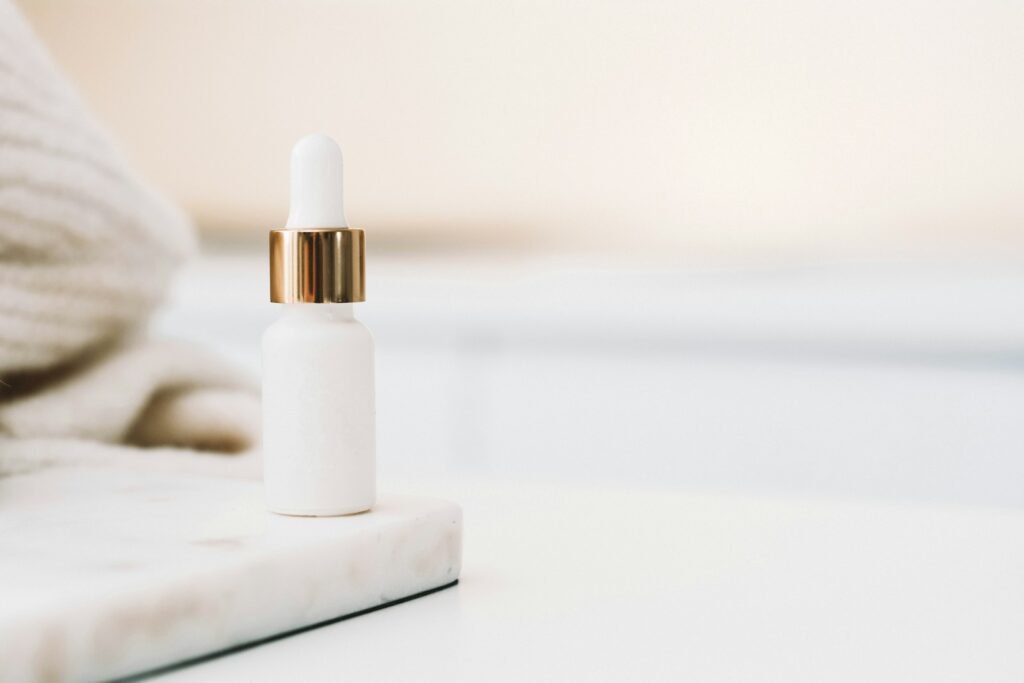
Safe Alternatives to Retinol during Pregnancy
During pregnancy, discontinuing the use of retinol-containing skincare products can worry women who rely on its benefits. However, safe alternatives exist that can address common skin concerns without posing any risk to the developing fetus.
Good news, Several other pregnancy-safe skincare ingredients and products effectively tackle a range of skin issues while prioritizing the health and well-being of both mother and baby. Pregnant women should consult their healthcare providers before using any skincare products to ensure the safety and well-being of their developing baby.
Safe Alternatives to Retinol
- Niacinamide (Vitamin B3): Helps regulate oil production, reduce inflammation, and improve skin texture.
- Vitamin C: Known for its antioxidant properties, it brightens the skin and protects against environmental damage.
- Hyaluronic Acid: A hydrating powerhouse that retains moisture, keeping the skin plump and supple.
- Azelaic Acid: Another safe alternative, azelaic acid helps to address skin concerns such as acne and hyperpigmentation without posing risks during pregnancy. It’s particularly beneficial for those dealing with hormonal changes affecting their skin.
Alternatively, some experts recommend:
- Bakuchiol: A plant-derived alternative to retinol, offering similar benefits without the associated risks. There are limited research about its use during pregnancy in my opinion, so I personally like to err on the side of caution, so I’d avoid this one.
Considerations When Choosing a Skincare Ingredient
When selecting pregnancy-safe skincare products, prioritize the health and well-being of both mother and baby. Here’s how to navigate the process:
- Look for labels indicating they are specifically formulated for expectant mothers or free from harmful ingredients:
- Many skincare brands offer products specifically formulated for pregnant women, with labels clearly indicating their safety during pregnancy. These products typically undergo rigorous testing to ensure they are free from ingredients known to be harmful or risky during pregnancy. However, don’t just take their word for it. Always read the ingredient list.
- If a product is not explicitly labeled as pregnancy-safe, carefully review the ingredient list to identify any potentially harmful substances. Avoid products containing retinol, retinoids, high concentrations of salicylic acid, formaldehyde, phthalates, and parabens.
- Steer clear of products with fragrances, as they may contain undisclosed ingredients that could pose risks.
- Opt for products labeled as hypoallergenic, non-comedogenic, and fragrance-free, as these are less likely to cause irritation or allergic reactions, which can be more pronounced during pregnancy due to hormonal changes.
- Choose reputable skincare brands offering pregnancy-safe lines tailored to address the unique needs of pregnant women:
- Reputable skincare brands with a focus on safety and efficacy often offer dedicated pregnancy-safe product lines or collections. These products are specifically formulated to address common skin concerns experienced during pregnancy, such as hormonal acne, dryness, sensitivity, and hyperpigmentation while adhering to strict safety guidelines.
- Look for brands that prioritize transparency and provide detailed information about their product formulations, manufacturing processes, and safety standards.
- Seek out reviews and recommendations from trusted sources, such as dermatologists, obstetricians, and fellow expectant mothers, to ensure you’re selecting products from brands with a track record of reliability and integrity.
- Consider consulting with your healthcare provider or a board-certified dermatologist for personalized recommendations based on your individual skin type, concerns, and any specific pregnancy-related issues you may be experiencing. They can offer valuable guidance and help you navigate the vast array of skin care products available, ensuring you make informed choices that support your skin’s health and safety throughout pregnancy.
What happens if you accidentally use retinol while pregnant?
If you accidentally use retinol while pregnant, it’s natural to feel concerned about the potential consequences. Here’s what you need to know:
- Stay Calm: First and foremost, try to remain calm. Accidental exposure to retinol doesn’t automatically mean harm to your baby, but it’s essential to take appropriate action.
- Rinse Off When Possible: If you’ve applied a retinol-containing product to your skin, wash it off immediately with a gentle cleanser and water. This can help minimize absorption and reduce potential risks.
- Avoid Further Use: In the future, be vigilant about checking product labels for retinol and other potentially harmful ingredients, and opt for pregnancy-safe alternatives to minimize the risk of accidental exposure.
- Consult Your Healthcare Provider: Reach out to your healthcare provider as soon as possible to discuss the situation. They can provide personalized advice based on your individual circumstances and may recommend additional steps or monitoring to ensure the well-being of you and your baby.
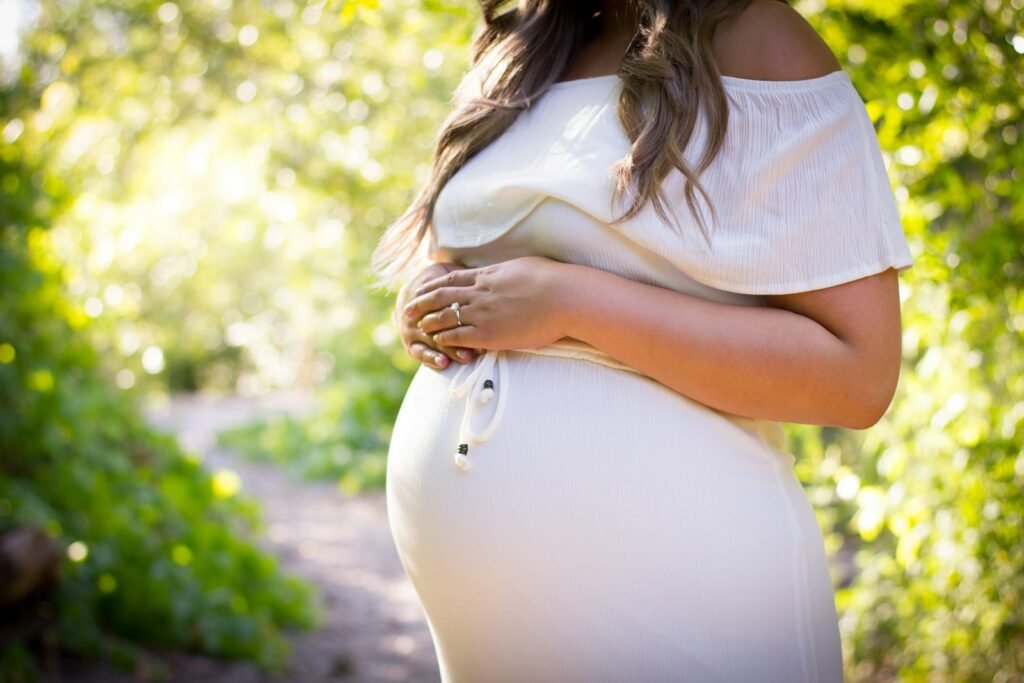
Are there any other ingredients to avoid during pregnancy?
Absolutely. While retinol is a primary concern, there are several other ingredients that pregnant women should steer clear of to ensure the safety of themselves and their babies. Here’s a rundown:
1. Salicylic Acid: This ingredient is controversial in skincare world. Some dermatologists encourage usage, while others suggest to avoid. Salicylic acid is best avoided during pregnancy, especially in high concentrations.
While topical use may be considered safe in small amounts or short-contact products like cleansers, oral intake of salicylic acid (aspirin) is not recommended during pregnancy due to its potential to cause complications.
I like to stay on the side of caution, so I say avoid completely if possible.
2. Benzoyl Peroxide: While benzoyl peroxide is commonly used to treat acne, its safety during pregnancy is not well-established.
While topical use may be considered safe in low concentrations, it’s best to consult with your healthcare provider before using products containing benzoyl peroxide during pregnancy.
3. Formaldehyde: Found in some nail polishes, hair straightening treatments, and certain skincare products, formaldehyde is a known carcinogen and should be avoided during pregnancy due to its potential to cause harm to both mother and baby.
4. Phthalates: Commonly found in fragrances, phthalates are a group of chemicals that have been linked to adverse reproductive and developmental effects.
Pregnant women should opt for fragrance-free products or those labeled as phthalate-free to minimize exposure.
5. Parabens: Widely used as preservatives in cosmetics and skin care products, parabens have been associated with hormone disruption and potential reproductive toxicity.
While more research is needed to fully understand their impact on pregnancy, many pregnant women choose to avoid products containing parabens as a precautionary measure.
Bottom Line
In conclusion, can you use retinol during pregnancy? The answer is generally no, due to potential risks to the developing fetus. Avoiding harmful ingredients like retinol is essential. Opting for safe alternatives such as niacinamide, vitamin C, hyaluronic acid, and azelaic acid ensures the well-being of both mother and baby.
Consulting healthcare providers for personalized guidance and choosing reputable brands offering pregnancy-safe products are crucial steps. By prioritizing safety and making informed choices, expectant mothers can maintain healthy, radiant skin throughout their pregnancy journey.


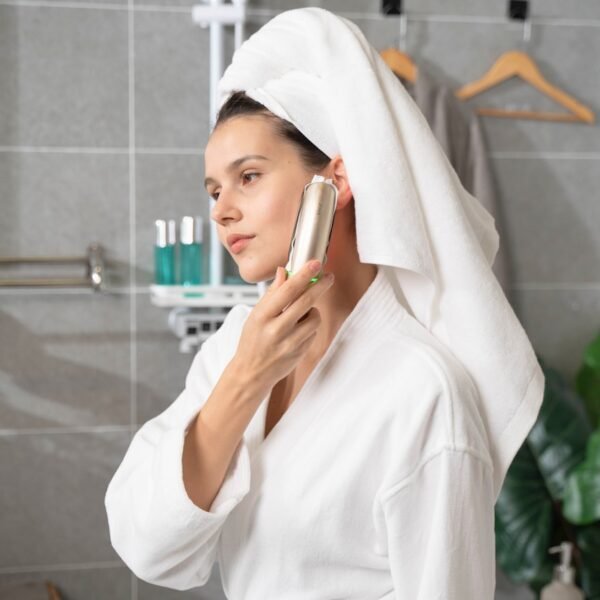
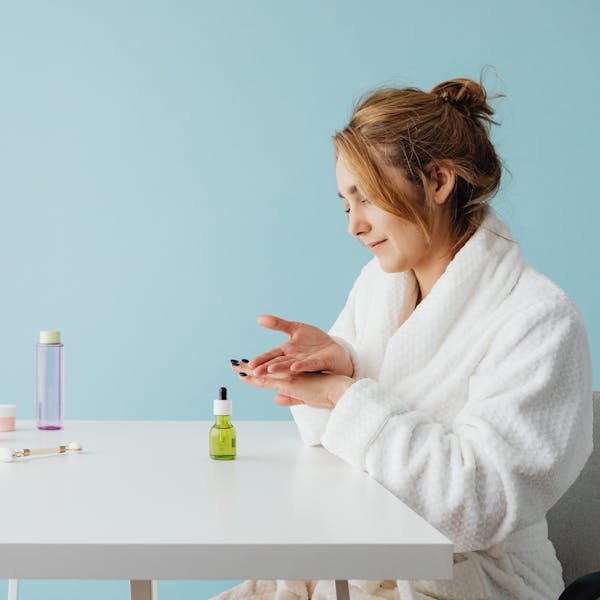
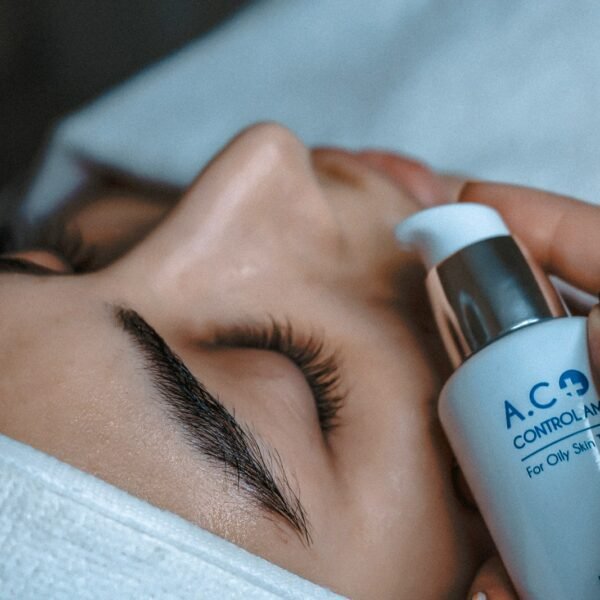
Leave a Reply